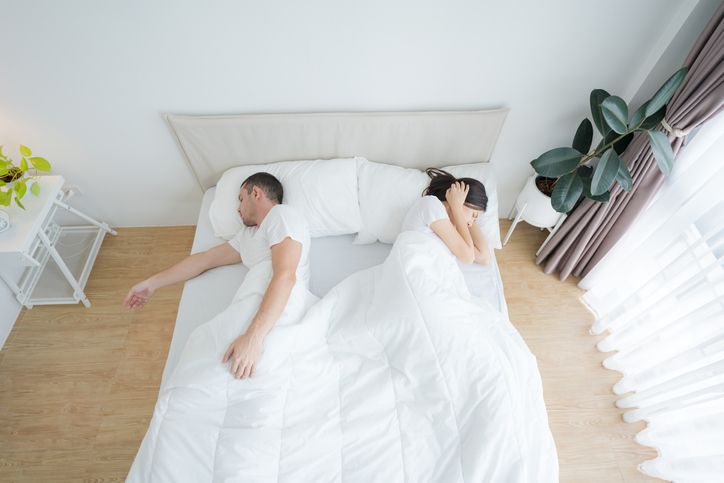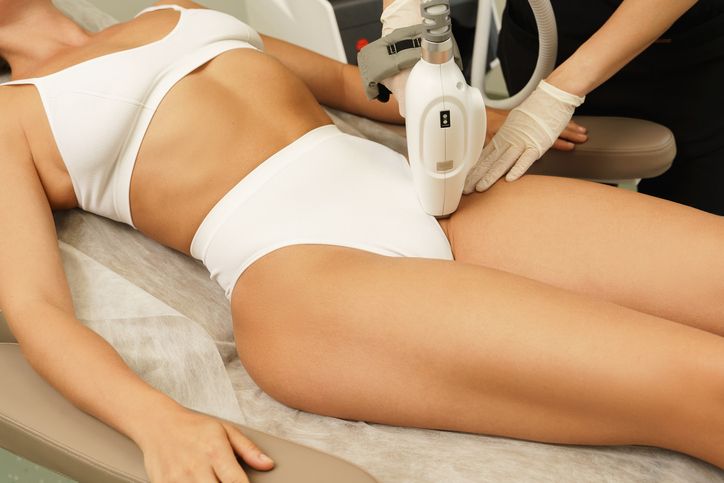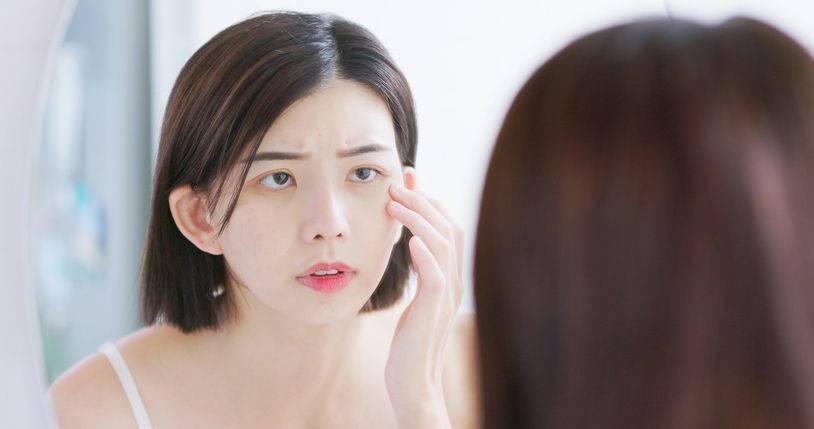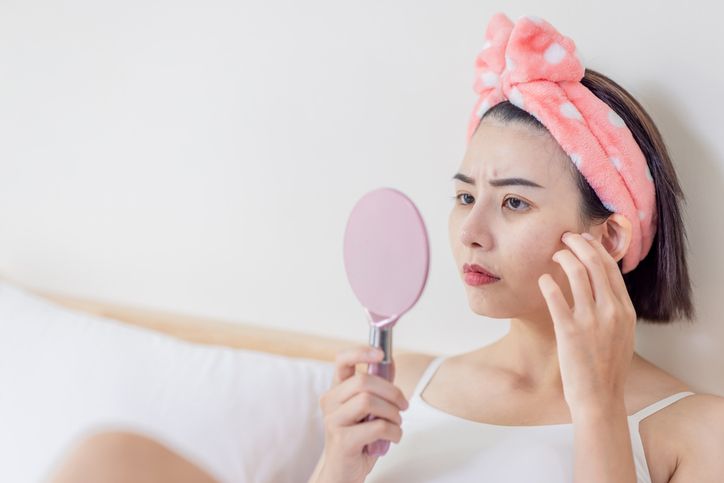- Home
- Trend
- Weight Loss Strategies
- Acne Tips
- Hair Health Information
- Blemish Removal Tips
- Acne Scar Removal Tips
- Muscle Building Techniques
- Intimate Care Tips
- Postpartum Intimate Care
- Eye Bags Wiki
- Tips for Face Slimming
- Secret of Permanent Hair Removal
- Breast Enlargement Tips
- Cure to Snoring
- Marionette Lines
- Skin-Tightening Secrets

免費體驗
Acne Treatment
1 Minute Self-Registration
Date should not be before minimal date
Dealing with acne can be frustrating and confidence-shattering. Fortunately, the solution might be right in front of you – acne-fighting face mask. These powerful skincare tools have gained immense popularity for their ability to combat acne and improve overall skin health. In this comprehensive guide, we'll dive deep into the world of face masks for acne, exploring their benefits, types, application techniques, and more.
1
Face Mask for Acne: Unveiling the Magic
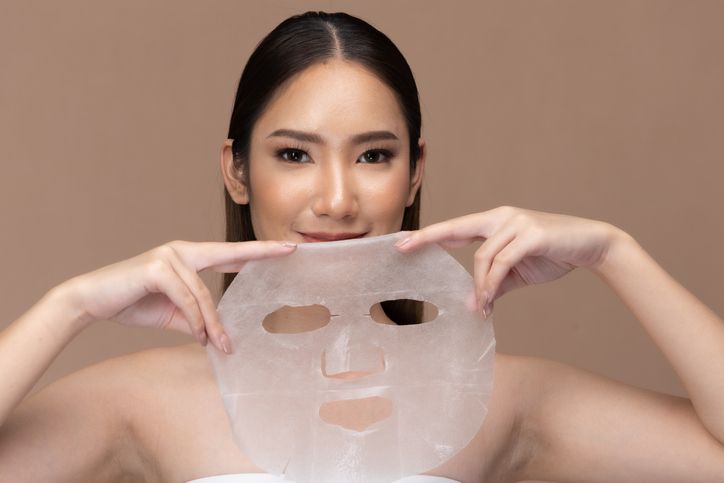
If you're wondering whether a face mask can truly make a difference in your battle against acne, the answer is a resounding yes! A face mask for acne is specially formulated to target impurities, excess oil, and inflammation that contribute to acne breakouts. By incorporating the right face mask into your skincare routine, you can effectively unclog pores, reduce redness, and promote clearer skin.
What is the difference between sheet and cream masks for acne prone skin?
1. Sheet mask Sheet masks, on the other hand, are thin, fabric-like sheets soaked in a liquid solution. These masks are generally more lightweight and hydrating compared to cream masks. While sheet masks may not contain as high a concentration of acne-fighting ingredients, they can still offer benefits for acne-prone skin. Many sheet masks contain soothing and hydrating ingredients such as hyaluronic acid, aloe vera, and tea tree oil. These ingredients help calm inflammation, provide essential moisture, and create a barrier that locks in hydration. Sheet masks are convenient and cover the entire face, making them a suitable option for those looking for an all-over treatment for their acne.
In summary, the main difference between cream and sheet masks for acne lies in their texture, concentration of active ingredients, and application method. Cream masks provide a potent and targeted treatment with higher concentrations of acne-fighting ingredients, while sheet masks offer a more hydrating and soothing experience for the entire face.
2. Cream mask Cream masks come in a thicker, creamy texture that is applied directly to the skin. These masks often contain a higher concentration of active ingredients, making them suitable for targeted treatments. When it comes to acne, cream masks can be formulated with ingredients like benzoyl peroxide, salicylic acid, or sulphur, which are known for their acne-fighting properties. The creamy consistency allows these ingredients to penetrate deeply into the skin, helping to unclog pores, reduce inflammation, and control excess oil production. Cream masks are ideal for those who prefer a more intensive and localised approach to treating acne.
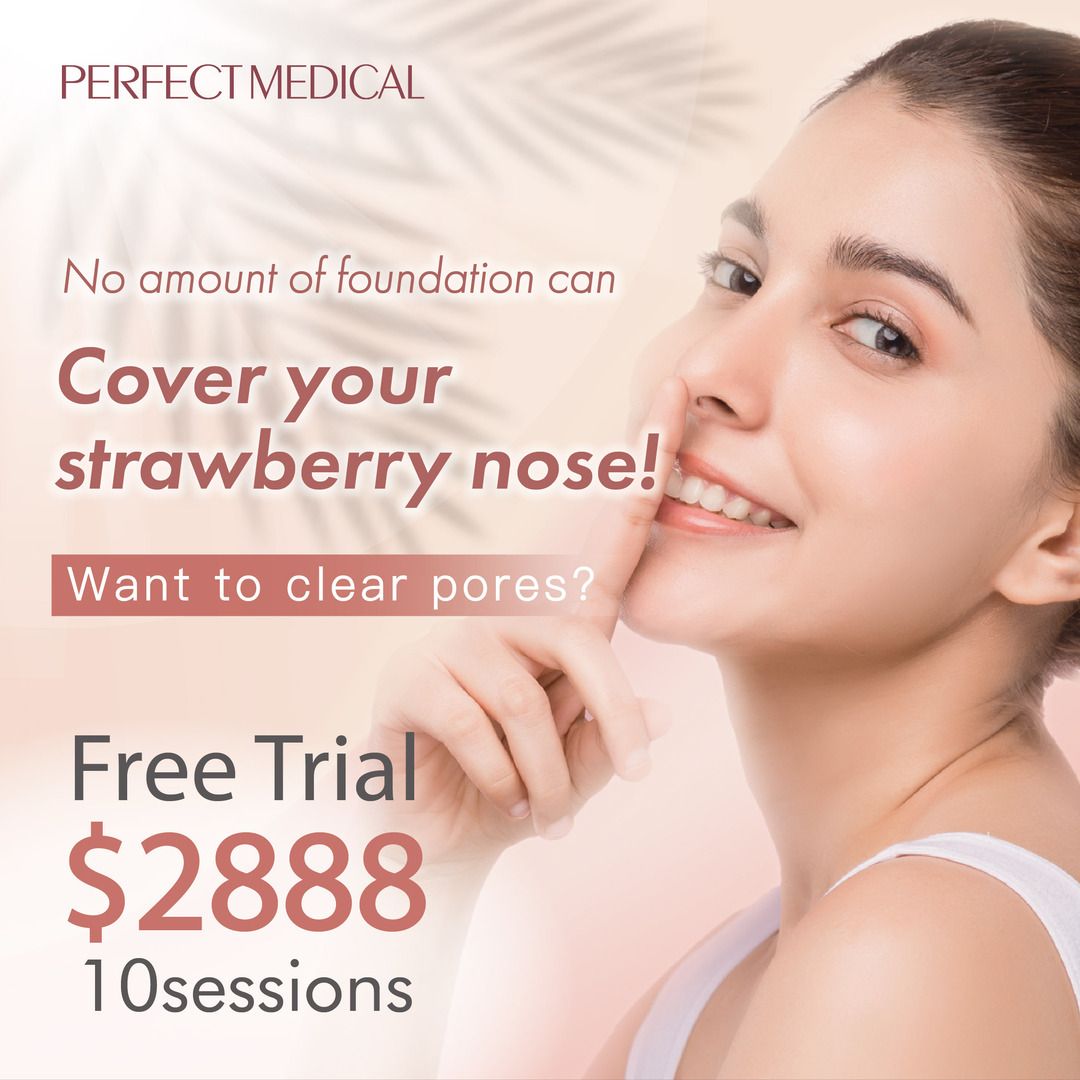
2
Treat Acne Based on Your Skin Type: Which Mask to use?
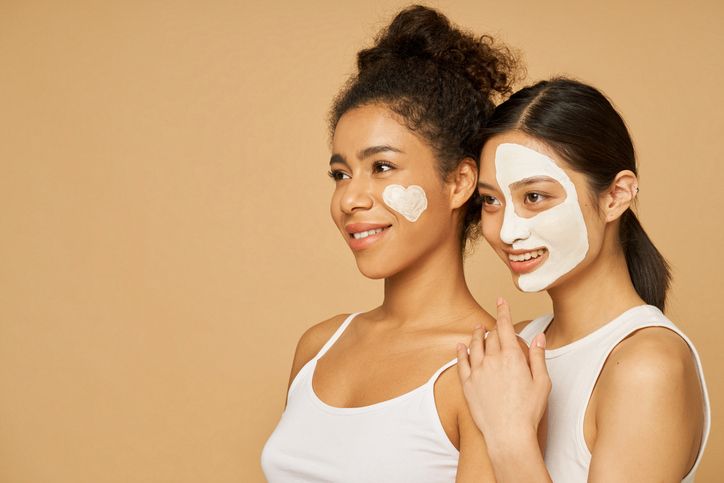
Dealing with acne on combination skin
Combination skin presents a fascinating contrast, with some areas being oily while others lean toward dryness. The challenge lies in tackling acne without disrupting this delicate equilibrium. Opt for a gentle cleanser that doesn't contain sulphates to clean both the oil-prone and dry zones. When it comes to exfoliation, exercise caution and focus on the areas that are more susceptible to breakouts. Consider using a clay mask to regulate excess oil on the oily parts, and a hydrating mask to provide relief to the dry areas. Complete the routine with a non-comedogenic moisturiser that doesn't clog pores. Precision is key here – address specific regions while embracing the diverse nature of your skin.
Addressing acne on dry or sensitive skin
Acne treatment on dry skin requires a gentle touch. Begin with a hydrating cleanser that effectively cleans without stripping away your skin's natural oils. Gentle exfoliation twice a week is enough to avoid causing further dryness. Opt for acne treatments that are mild and won't cause excessive irritation. Choose non-comedogenic and hydrating products to restore and maintain your skin's moisture. Incorporate a richer and more nourishing moisturiser to quench your skin's thirst for hydration. Aim for a balanced routine that caters to both your acne concerns and the dryness, creating an environment that fosters healing.
Managing acne on oily skin
Oily skin often struggles with heightened oil production, which can become a breeding ground for acne. Finding the right balance is the key. Start with a cleanser containing salicylic acid, a wonderful ingredient for unclogging pores without causing excessive dryness. Practise gentle exfoliation to prevent the accumulation of oil. Opt for acne treatments that are oil-free and won't worsen the situation. To control the oiliness, consider introducing a clay mask into your routine. Follow up with a lightweight, oil-free moisturiser that maintains hydration without contributing to the already present shine. Consistency is your greatest ally – a routine that effectively manages oil production without triggering acne will pave the way to a clearer complexion.
3
Different Types of Face Masks for Acne: Popular Choices
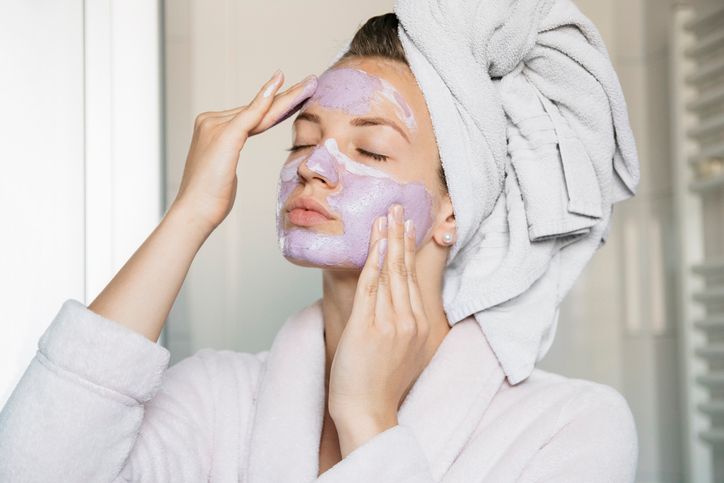
When it comes to combating acne, the world of face masks offers a variety of options, each carefully crafted to meet specific skin needs. These acne-fighting masks cater to different skin types, helping achieve clearer and healthier skin. Among the impressive lineup, four standout options deserve special attention:
Clay masks: Restoring balance with natural detoxification
Clay masks are renowned for their ability to absorb excess oil, making them essential for addressing acne. They penetrate deep into pores, removing impurities and restoring purity. Using ingredients like bentonite or kaolin clay enhances their effectiveness. The combination of natural elements and scientific expertise revitalises the skin, freeing it from acne-related concerns.
Charcoal masks: Harnessing charcoal's cleansing power
Activated charcoal masks work like magic to purify the skin. They attract dirt, toxins, and blemishes from deep within, revealing clear skin. Pores are no longer a hiding place for impurities; they become channels for transformation. The detoxifying effect of activated charcoal brings forth a complexion of purity.
Salicylic acid masks: Exfoliation and prevention in action
Salicylic acid masks excel at exfoliating and unclogging pores. They are particularly effective for oily, acne-prone skin, helping prevent breakouts. These masks rejuvenate the skin's surface, promising clearer days ahead.
Sulphur masks: Nature's defence against inflammation and blemishes
Sulphur masks, derived from natural sources, combat bacteria, reduce inflammation, and manage blemishes with gentle efficacy. Ideal for mild to moderate acne, these masks soothe and restore the skin, providing relief from the challenges of acne.

4
How to Apply a Sheet Mask for Acne Correctly?
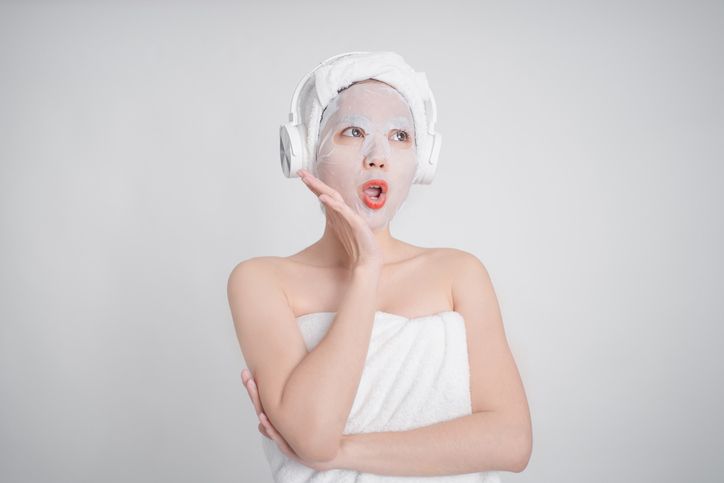
Imagine your skin as a canvas, and applying a face mask is like painting a beautiful picture. Every step you take adds to the masterpiece of healthy skin. Cream masks are relatively easier to use than sheet mask since all you need to do is just wipe them on your face. So, to make sure your sheet mask works its best, follow these easy steps:
1. Cleanse Your Skin
Start with a clean face. Wash your face gently to remove any dirt or makeup. This helps the mask work better by letting your skin soak in all the good stuff and remove excess sebum.
2. Exfoliate (if needed)
Think of exfoliation as a gentle helper. It's like smoothing the canvas before painting. You can gently exfoliate your skin needs it. It clears away old skin cells so the mask can do its job even better.
3. Put on the Mask
Use your fingers or a brush to put on the mask. Cover your face evenly, but avoid your eyes and lips. Imagine you're painting your face with care, making sure every part gets its share.
4. Relax and Wait
Once the mask is on, take a break. Relax for about 10 to 15 minutes. Let the mask do its magic. It's like a little rest in your self-care routine.
5. Wash Off the Mask
Many people might try to skip this step but not all masks are suitable to leave them on your skin. When the time is up, wash off the mask with lukewarm water. Pat your face gently with a towel to dry.
6. Moisturize
The last step is like adding a final touch to keep your skin condition stable. Use a light moisturiser that won't clog your skin. This helps keep your skin soft and glowing.
By following these easy steps, you're turning taking care of your skin into something artistic. Each step adds to the final result, giving you healthy and happy skin. Enjoy each step and treat yourself kindly. Your skin is your canvas, and you're creating a masterpiece of self-care.
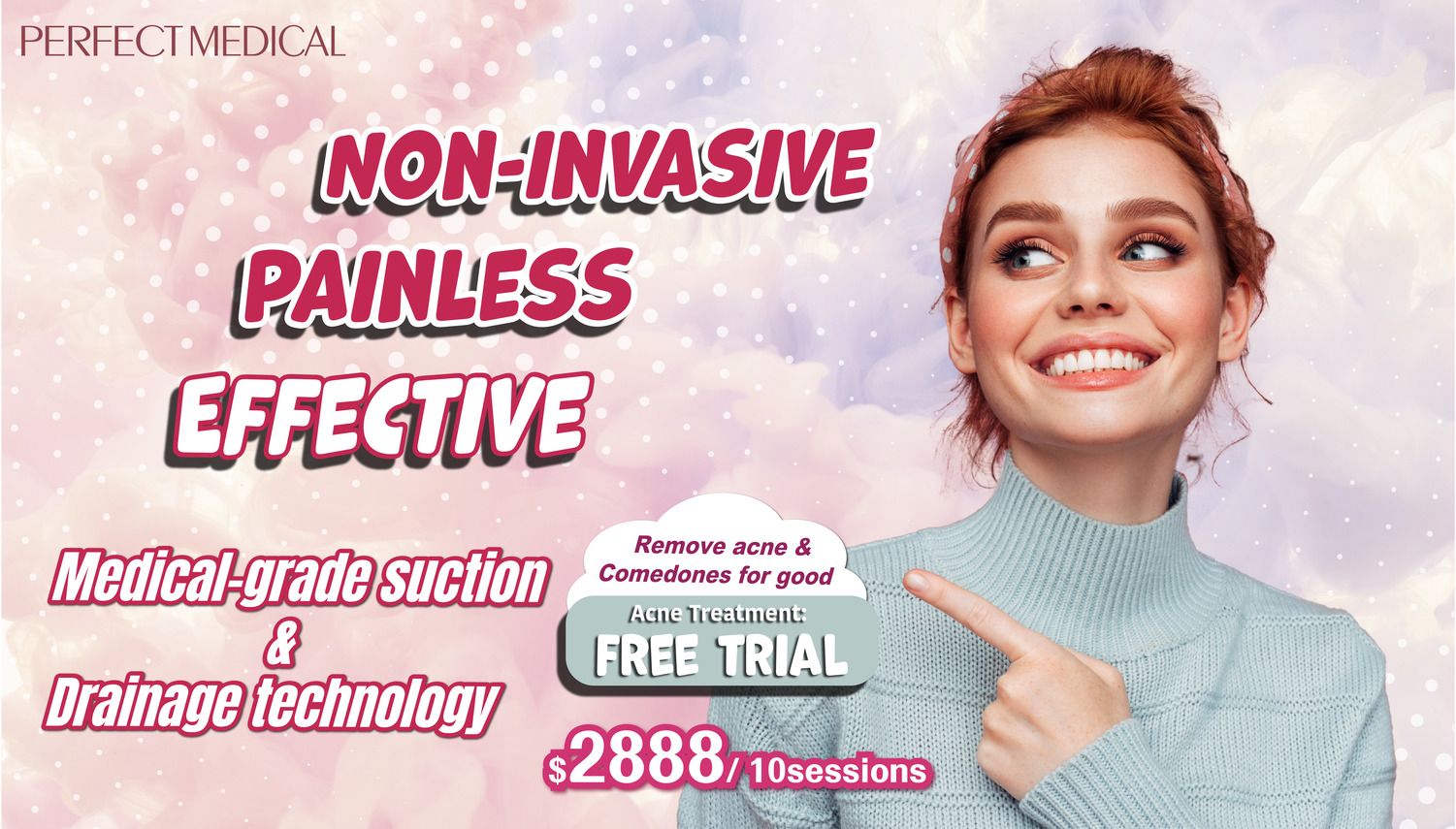
免費體驗
Acne Treatment
1 Minute Self-Registration
Date should not be before minimal date
5
Nothing is too good when it is excess: What happens if I use too much face mask?

We all desire healthy and radiant skin, often turning to various skincare products to achieve that goal. Face masks, in particular, have gained popularity for their ability to address specific skin concerns and provide a refreshing boost. However, the saying "nothing is too good when it is excess" holds true, even in the realm of skincare. While face masks offer benefits when used appropriately, overusing them can lead to unintended consequences.
Effects of overusing face masks
1. Skin irritation
Excessive use of face masks can lead to skin irritation. Many masks contain active ingredients that, when used too frequently, can cause redness, itching, or a burning sensation. For instance, masks with ingredients like glycolic acid or benzoyl peroxide, designed to exfoliate or treat acne, can be harsh on the skin if overused.
2. Dryness
Some face masks, particularly clay-based ones or those designed to control oil, can strip the skin of its natural oils if used excessively. This can result in dry, flaky, and uncomfortable skin.
3. Sensitivity
Overusing face masks can compromise your skin's natural barrier function, making it more sensitive to external aggressors such as pollution and UV rays. This increased sensitivity can lead to a heightened risk of redness, inflammation, and even breakouts.
4. Breakouts
Paradoxically, excessive use of certain face masks can lead to breakouts. If your skin becomes overly dry or irritated due to frequent masking, it may trigger a response where your skin produces more oil to compensate. This excess oil can clog pores and lead to acne.
5. Allergic reactions
Some face masks may contain ingredients that you are allergic to. While patch tests can help identify potential allergens, using a mask too frequently can increase your exposure to these allergens and potentially lead to allergic reactions.
Finding the right balance
Face masks can be a valuable addition to your skincare routine, but moderation is key. It's recommended to use a mask 1-3 times a week, depending on the type of mask and your skin's needs. Be sure to follow the instructions on the product packaging and pay attention to your skin's response. If you really want to get spotless and nice skin within a shorter period of time, we have an answer for you.

6
Perfect Medical's Answer to Acne Woes: The Acne Treatment

When it comes to dealing with acne issues, Perfect Medical steps forward with a solution that goes beyond the surface. Acne scars, pimples, whiteheads, and blackheads can all impact self-esteem, and the search for effective treatments has been ongoing. From creams to chemical peels, various options have emerged, but not all of them provide lasting results.
Introducing The Acne Treatment, a game-changer from Perfect Medical. What sets it apart is its non-invasive approach—no surgery, injections, or oral medications involved. Whether dealing with mild or severe acne, this treatment offers hope to those looking for a solution.
The process involves a two-fold approach. Firstly, the dual spiral suction + drainage technology works to remove dead skin cells and clean up clogged pores. This can help to soothe inflamed skin to reduce infection caused by acne. Then, a hydrating serum is applied to balance sebum production and promote collagen growth. By keeping oil levels in check, the likelihood of acne recurrence is minimised.
But the Acne Treatment doesn't stop at just acne. It's a versatile solution that addresses various skin issues—blemishes, blackheads, whiteheads, pockmarks, enlarged pores, dry skin, acne scars, and even dull skin tone. It's a chance to enhance both appearance and self-confidence.
The journey to healthier skin doesn't have to be complicated. Perfect Medical's Acne Treatment offers a practical and effective way to tackle multiple concerns. Say goodbye to the frustration of short-term solutions and embrace a treatment that brings lasting improvements. With The Acne Treatment, you're not just enhancing your skin; you're boosting your self-assurance too.
7
Conclusion

Incorporating a face mask for acne, be it a clear skin sheet mask, a deluxe version face mask with lots of botanical ingredients into your skincare routine is not just a treat for your face, and it has slowly become a trend or a lifestyle that you might get used to. From clay to charcoal, or from aloe vera to dead sea mineral mud, these masks offer versatile solutions for different skin types and concerns.
Remember, consistency is key – don't expect overnight miracles, but with regular use, you'll likely notice a significant improvement in your skin's texture, tone, and overall clarity. So go ahead, treat yourself to a relaxing spa-like experience at home and combine it with the right treatment, so you can bid farewell to an irritated skin, and say hello to a happier, healthier complexion.
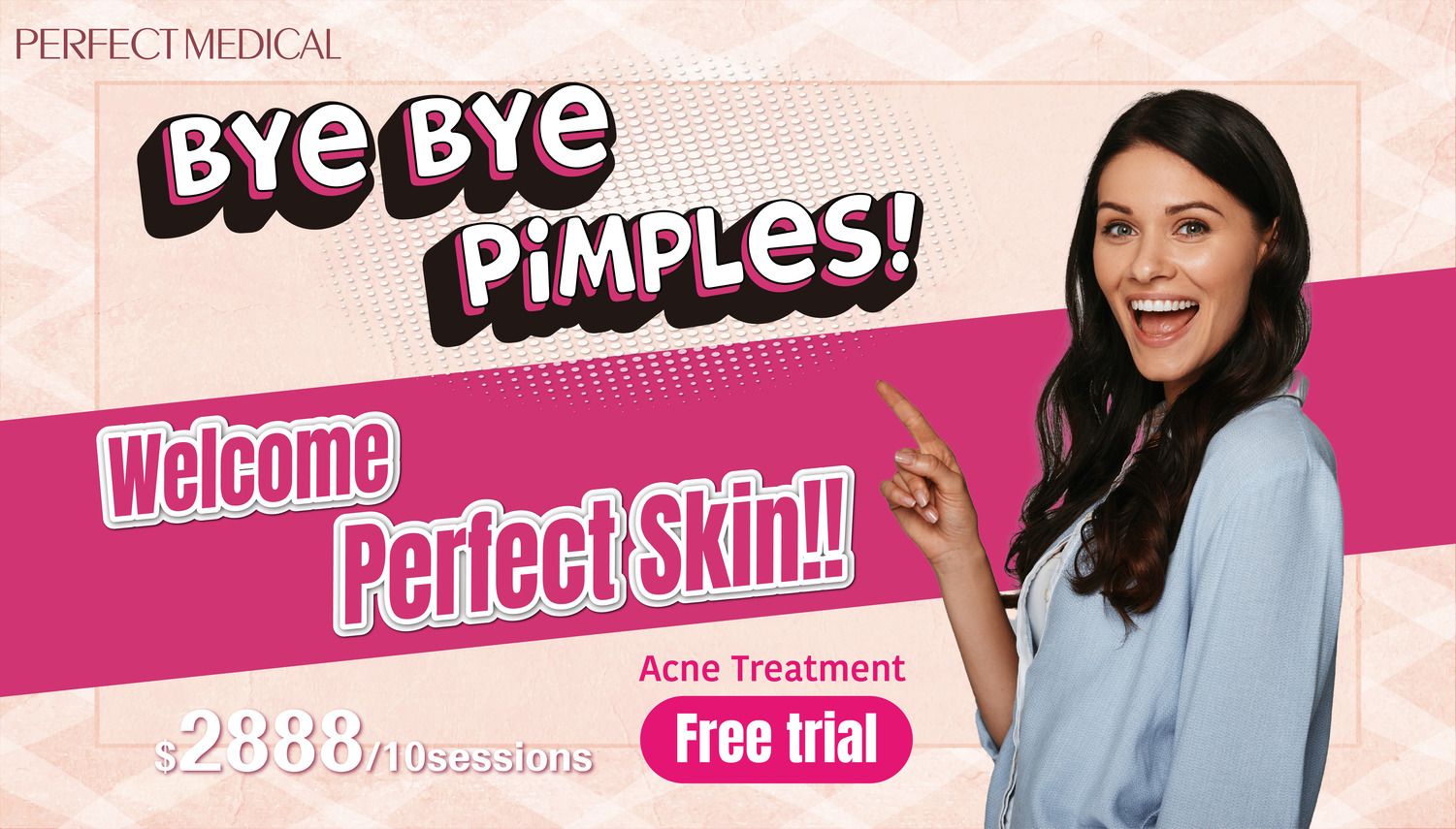
免費體驗
Acne Treatment
1 Minute Self-Registration
Date should not be before minimal date
FAQ

1. Can oily or combination skin use the same type of mask?
Absolutely! Oily or combination skin can benefit from using the same type of mask, provided the mask is specifically formulated to address their unique needs. Opt for masks that are oil-free and designed to regulate excess oil production. Ingredients like salicylic acid or charcoal can work effectively for both skin types. Remember, even within the same type, individual skin reactions may vary, so it's wise to do a patch test before applying the mask to your entire face. This will help ensure that your skin responds positively without any adverse effects.
2. How often should I use a face mask for acne?
It's generally recommended to use a face mask for acne 1-2 times a week. However, the frequency can vary based on your skin's needs and the specific mask you're using. To determine the best frequency, read and follow the instructions provided on the product. Overusing masks can sometimes lead to skin irritation, so it's important to find the right balance.
3. Can I make my own DIY face mask for acne?
Creating your own DIY face mask for acne is an option. Ingredients like honey, yoghurt, and turmeric are often used due to their potential skin benefits. Honey has antibacterial properties, yoghurt contains lactic acid for gentle exfoliation, and turmeric has anti-inflammatory properties. However, ensure that you're not allergic to any of the components and do a patch test before applying the mask to your face.
4. Should I moisturise after using a face mask?
Yes, as mentioned in the article, moisturising after using a face mask is a good practice. Face masks, especially those targeting acne, can sometimes strip the skin of its natural oils and moisture. Applying a suitable moisturiser helps to restore hydration, maintain the skin's barrier function, and prevent over-drying. Choose a moisturiser that suits your skin type, whether it's oily, dry, or combination.
5. Can face masks replace my daily skincare routine?
No, face masks should not replace your daily skincare routine. While face masks can provide specific benefits like deep cleansing, exfoliation, or hydration, they are meant to complement your regular skincare routine. A complete daily skincare routine involves cleansing, moisturising, and protecting your skin from the sun. Consistency in these steps is essential for maintaining overall skin health and addressing various concerns effectively.






